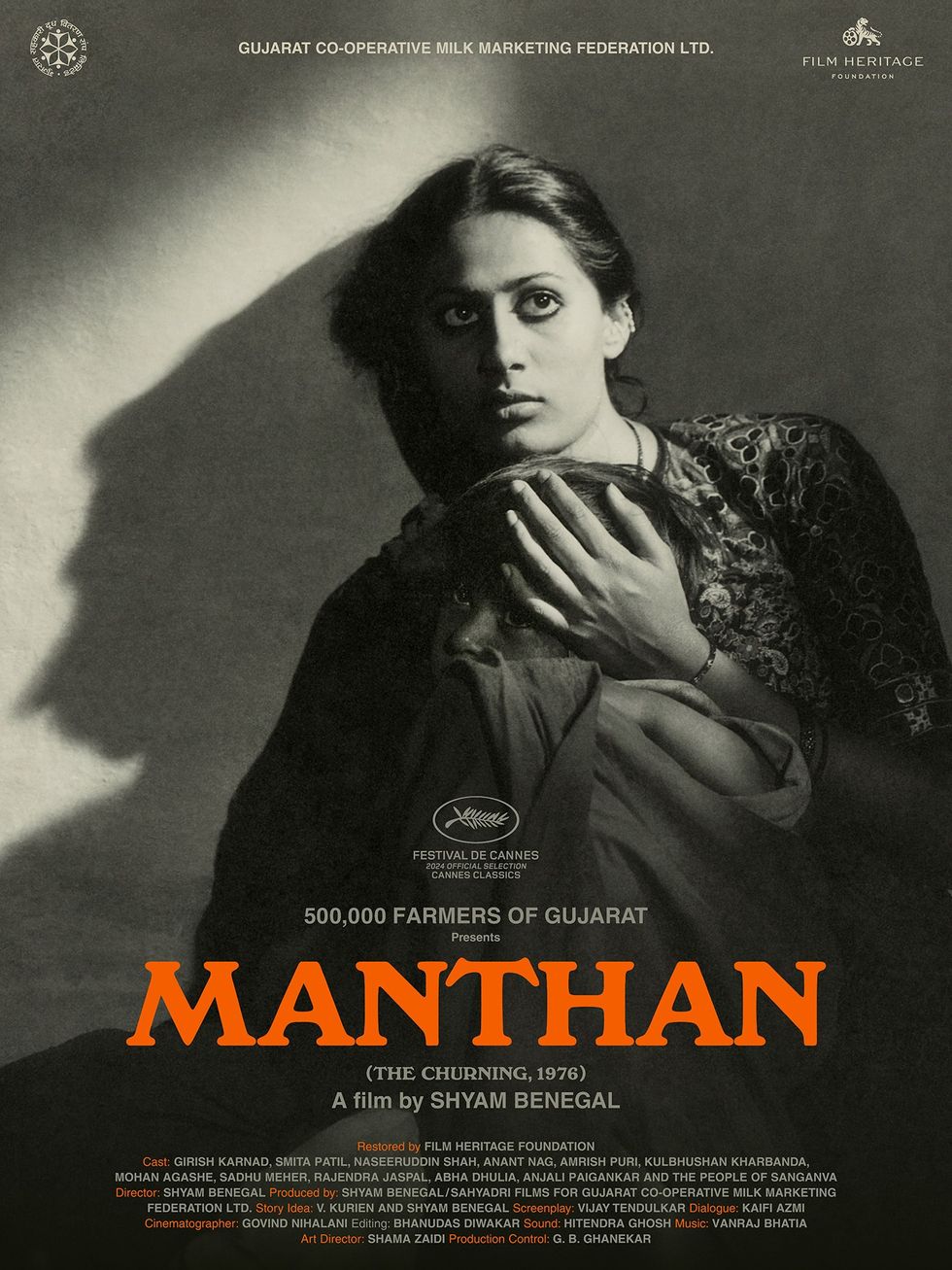HADIQA KIANI is arguably the most iconic female figure in modern Pakistani popular culture.
Beginning her career as a TV host, she made the leap into global pop stardom with a series of acclaimed albums and songs. More recently, she surprised everyone by excelling in acting, delivering powerful performances in celebrated serials.
Throughout her career, two constants have defined her journey, which began in the 1990s: an unwavering commitment to excellence and a dedication to humanitarian work. As a symbol of girl power, she has inspired generations while consistently reinventing herself.
Her latest evolution sees her collaborating with record label Sufiscore, producing remarkable music that includes new versions of her classics and work with a symphony or - chestra. Her latest release, Hayat, features soulful renditions of much-loved qawwalis. Kiani is also set to return to big stages after a very long break.
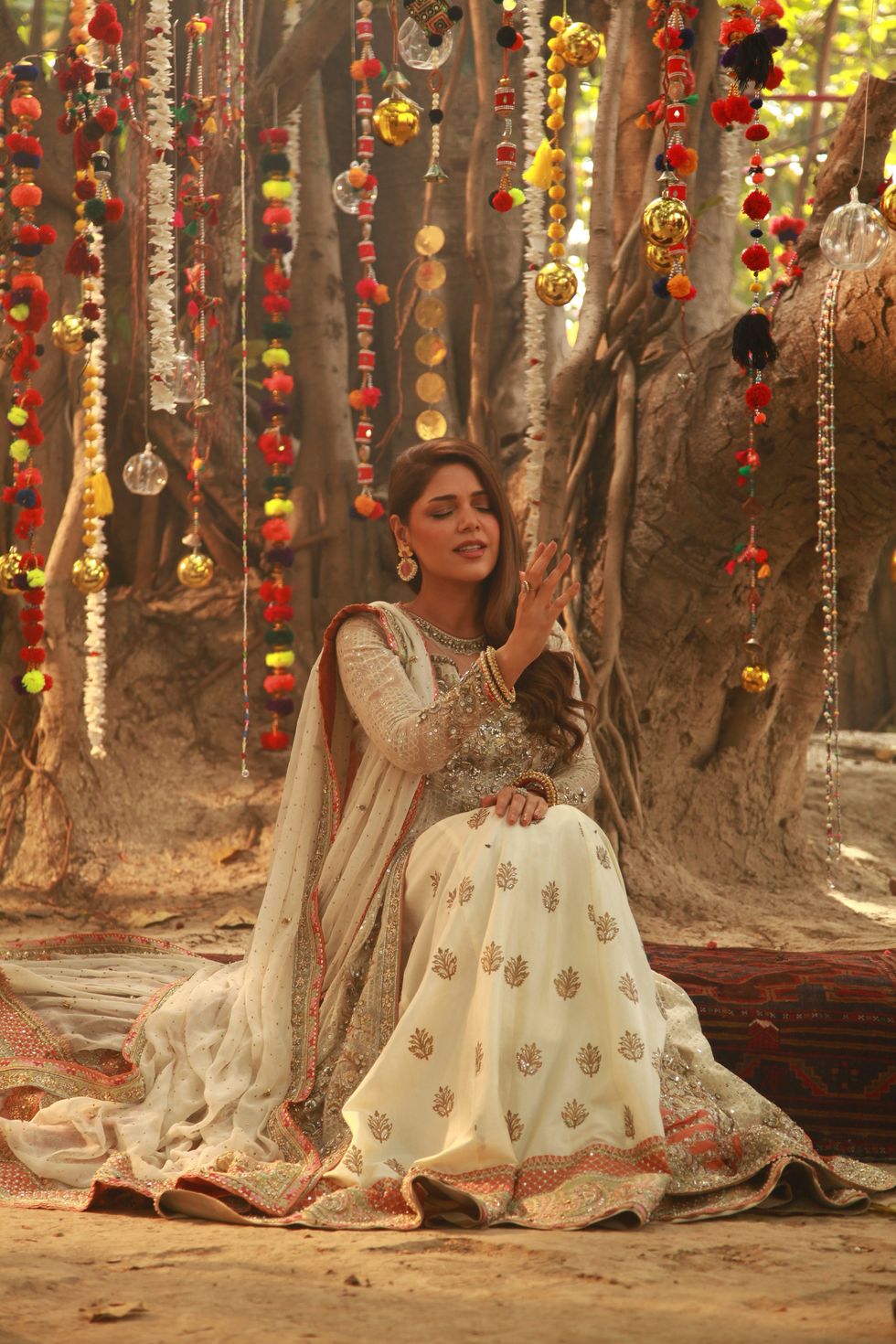
In an exclusive interview with Eastern Eye, the multitalented star reflects on her inspiring journey, her latest music, the Hayat EP, acting success, philanthropy, and her tasty passion away from work.
How would you sum up your music journey?
It has been an experience of evolution – seeking, searching, exploring, and unwinding challenges. It’s been about delving deeper into myself and constantly learning.
How have you upheld such high standards for so long?
I’ve always seen myself as a student of life, not just music. I learn from people, observe, and empathise. As an empath, I draw inspiration from emotions, people’s journeys, and experiences.
How do you feel about your songs becoming integral to people’s lives across decades?
When something comes from deep within your soul and is rooted in honesty, it touches people’s hearts. If you’re not authentic and are purely commercial, it feels shallow. Anything genuine connects deeply – that’s my experience with life, relationships, and music also.
Your recent songs are emotional and spiritual. Was that intentional?
It was a conscious decision influenced by my exploratory nature. I have an inquisitive mind that constantly seeks and explores different genres. Even in the 1990s, when I released Boohein Baariyaan, people thought it was a Sufi song, though I wasn’t doing Sufi music at the time. My mother wrote it, and I’ve always felt a deep connection to such music. Whenever I’m on stage, I close my eyes and find myself transported to another world.
Even if the lyrics aren’t understood, your songs convey deep emotion. How do you achieve that?
I don’t consciously try – it comes naturally. Music is my medium to channel my energies and emotions, almost like a tunnel through which they flow. I also meditate, which helps me align with myself. When I’m on stage, I focus on achieving a sense of oneness and resonance, and once that happens, the emotions emerge effortlessly. It takes me a little time to settle into that state, as I start in a different zone, trying to connect with my deeper self.
Your emotive voice is at its most powerful when you sing Sufi-based songs, like on your new music release Hayat.
When I sing Sufiana Kalam, it resonates deeply within my heart. The connection depends heavily on the poetry. Even when I perform western pop songs, I prioritise singing from my heart rather than just using my voice. However, with Kalam, the power and history it carries demand absolute justice. When I sing, I ensure I’m fully present in the moment, respecting the lyrics and letting the poetry flow naturally through my voice.
Tell us about your forthcoming projects.
I took a long break from music because I was the primary caretaker for my mother, who passed away two years ago. For 17 years, I chose not to tour, whether in the UK, America, or elsewhere. Now, I’m gradually returning to music.
I’ve worked on several projects with Sufiscore, including songs like Jaaney Is Dil, Jani Door, Kithe Nain, Inna Akhiyan, and Baari Thaani. My upcoming EP, recorded in Budapest with a symphony orchestra, features three of my earlier pop songs: Raaz, Yaad, and Aao Phir Aik Baar.
I’m also releasing an EP titled Hayat, which includes three qawwalis: Sanson Ki Malla, Tumhe Dillagi Bhool, and Pehsa Bholta Hai.
Is there pressure in taking on all-time classic qawwalis like you have done on Hayat?
There is always a sense of responsibility to do justice to whatever music or genre I take on. I continuously explore different musical styles, but tackling classics is undoubtedly a challenge. My brother has been my biggest support in this process – we collaborate closely and work hard to add our own creative touch, ensuring our versions stand out despite the many interpretations that already exist. He has produced these tracks beautifully, and I hope my audience will appreciate them. Hayat will be released this year.
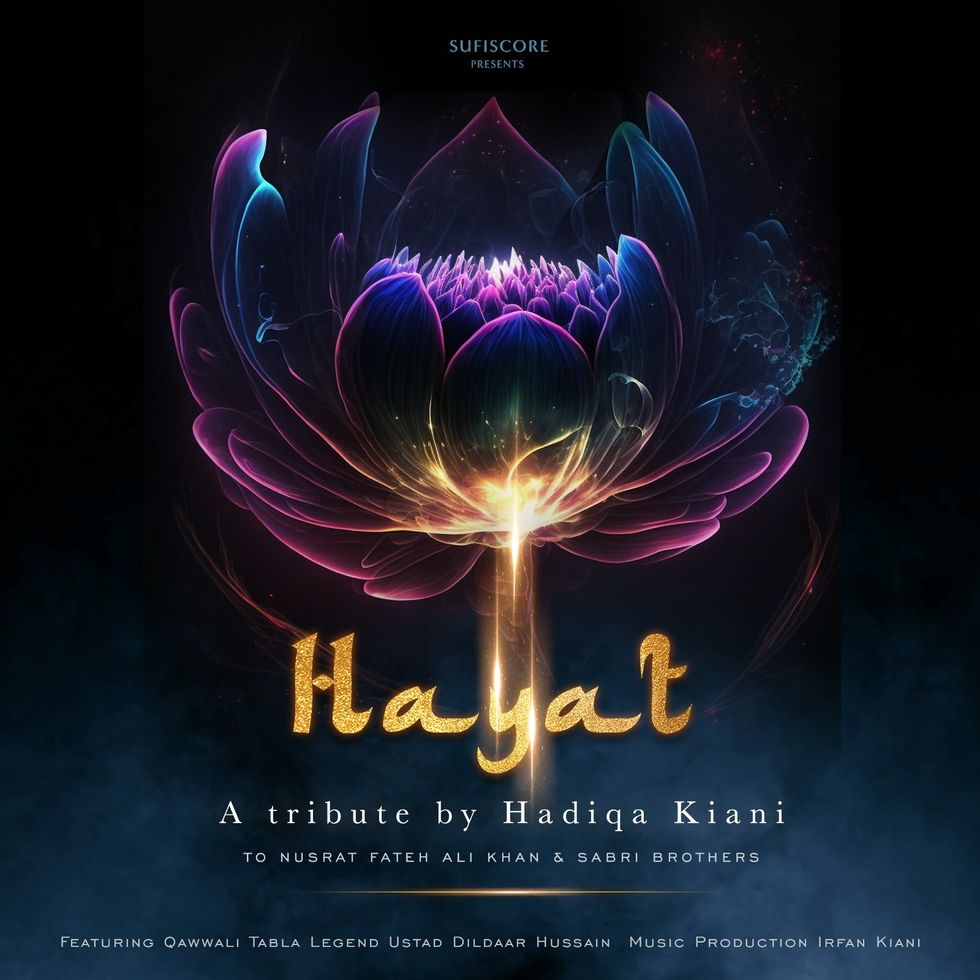
You have accomplished so much in music during your career. What is the plan going forward?
I’m looking forward to some big collaborations.
What about collaborations in the West?
Yes, that’s definitely on my wish list.
Another remarkable aspect of your journey has been your recent foray into acting, which has surprised everyone with its brilliance. Why didn’t you explore it earlier?
I probably didn’t explore acting earlier because I didn’t feel inclined to. When the opportunity came, I thought, why not give it a chance? It’s a completely different facet of life that I hadn’t experienced, so I decided to explore it. It was a big risk for me – I wondered how I would manage it or learn the script. But even in this, I approached it with sincerity and from the heart. I focused on expressing myself through my emotions, voice, and expressions.
Your performances in serials have received rave reviews. How did you approach them?
I approached each role by observing people and imagining different characters in my mind. Whatever character I was given, I fully immersed myself in it, making sure I wasn’t acting as Hadiqa but completely transforming into the role. For instance, in Raqeeb Se, I became Sakina, a Punjabi woman; in Dobaara, I portrayed Mehru; in Pinjra, I was Khadija; and in Hadsa, I was Taskeen, a rape survivor. Each of these four scripts allowed me to explore different aspects of myself as a performer.
Will you be taking on more acting projects?
I’ve received several offers recently, but I’m waiting for one script that truly stands out. I’m not interested in taking on anything ordinary.
The other thing I absolutely admire about you is your philanthropy and charity work. How much does giving back mean to you?
Giving back defines me and brings me ultimate satisfaction. When the 2010 floods struck, I felt a divine calling to start constructing houses. I chose an area in KPK that had been under Taliban control and built 255 houses there.
You also rebuilt houses after the recent floods in Pakistan
Yes, when the floods struck, I built 370 houses in Balochistan. Many people tried to discourage me, but I knew it was my calling. When I feel a divine calling, there’s no turning back. People said Balochistan was a challenging place, but I reminded them that rebuilding in Taliban-controlled areas was equally tough. I believed God would pave the way. It wasn’t just me – it was the love and support of people, combined with God’s will, that made it possible.
What inspires you?
Music inspires me deeply, along with people’s passion, life, the universe, and its energies.
We know you through your music, humanitarian work, and acting. But what are your passions away from work?
I love to cook. I’m a big foodie and enjoy cooking for my son. I used to cook for my mother as well. Being in the kitchen inspires me – I draw ideas from different chefs and cuisines. Other than music, cooking is my therapy.
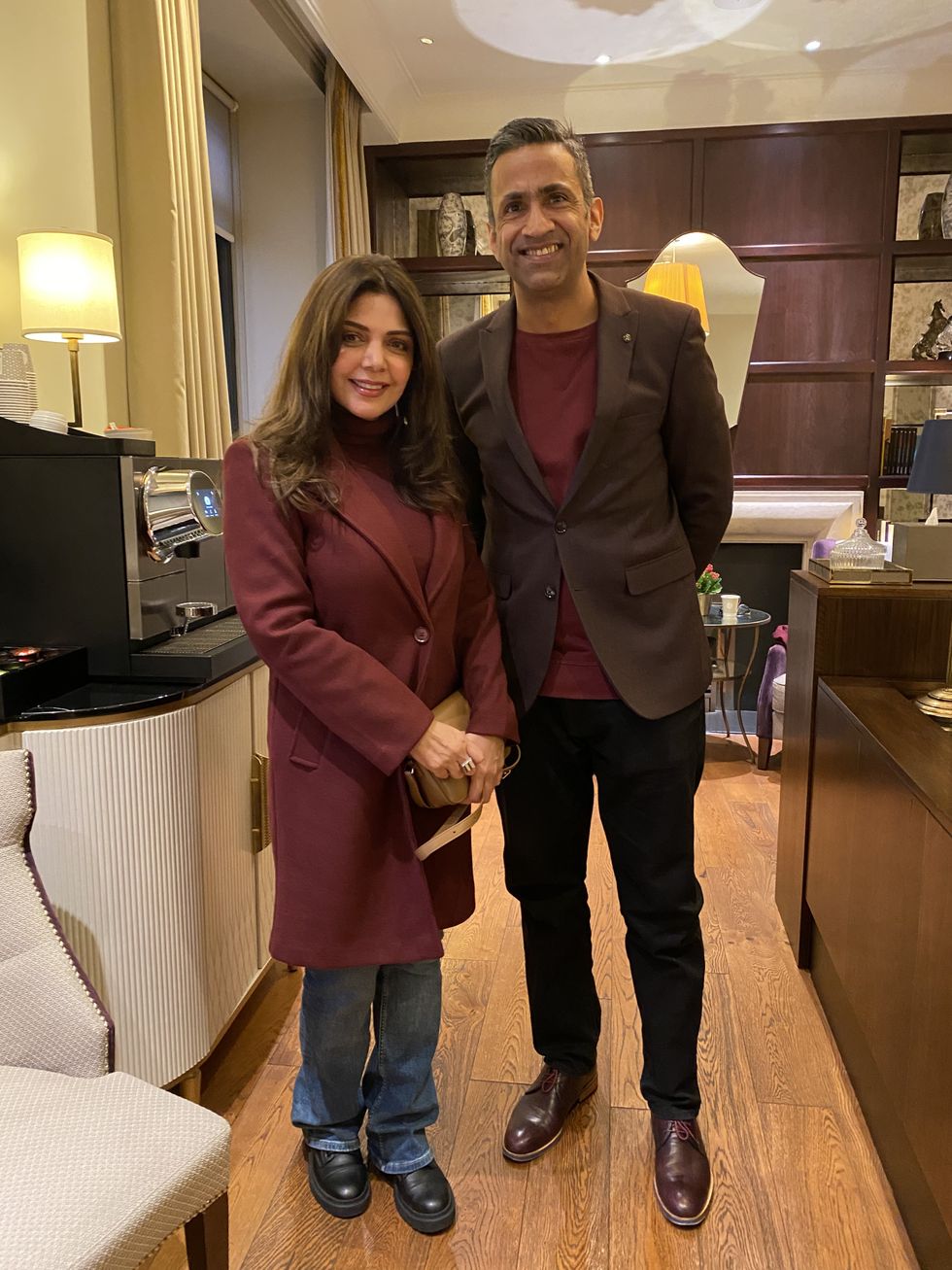
A lot of people listen to your music, but what is on your personal playlist?
My Spotify playlist includes a multilingual folder featuring various singers. Of course, I adore legends like Nusrat Fateh Ali Khan Saab, Mehdi Hasan Saab, Farida Khanum Ji, Begum Akhtar, and Madam Noor Jehan. I can listen to Khan Saab’s qawwalis for hours on end. I also enjoy exploring music from the new generation of artists.
Will we be seeing you back in the UK performing?
Call me, and I’ll be there.
Finally, what does music mean to you at this stage of your life and career?
Music means peace to me. It is my meditation and my therapy.






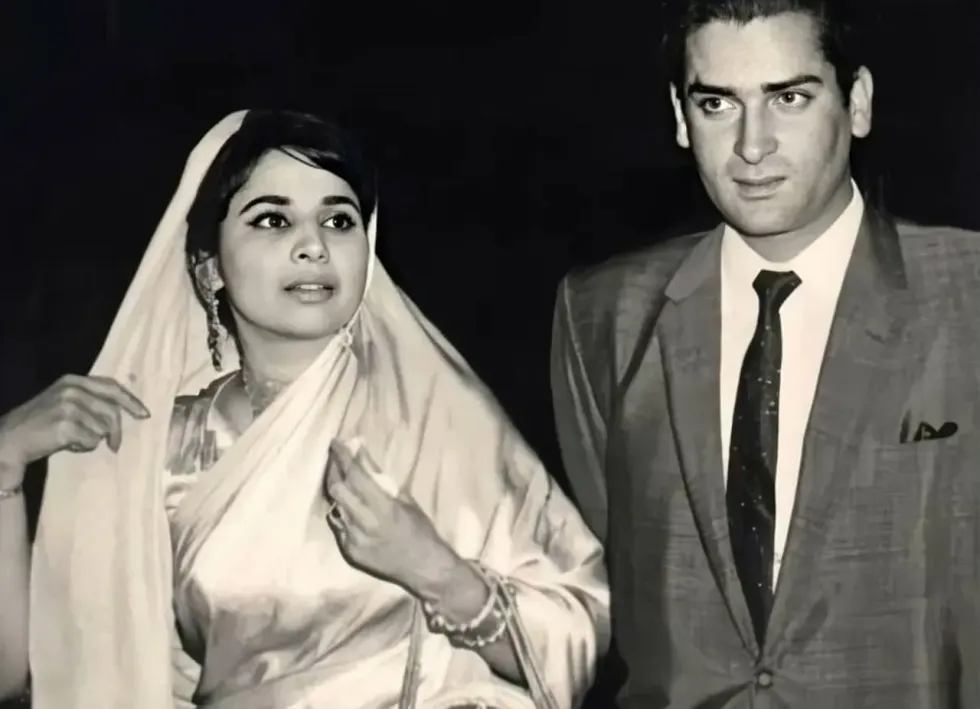 With her husband Shammi Kapoor
With her husband Shammi Kapoor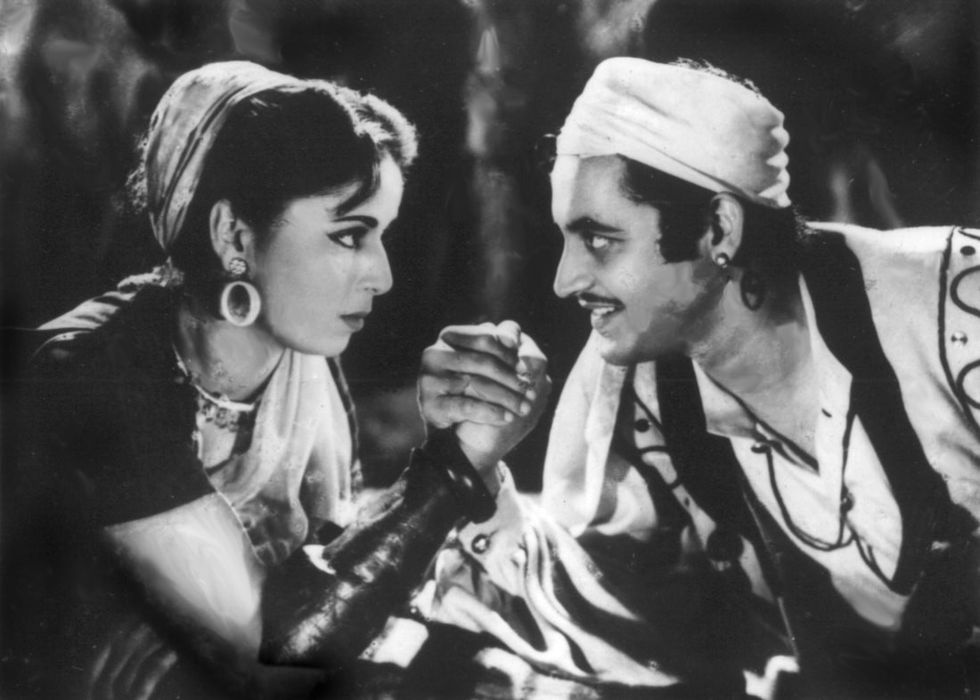 Baaz
Baaz



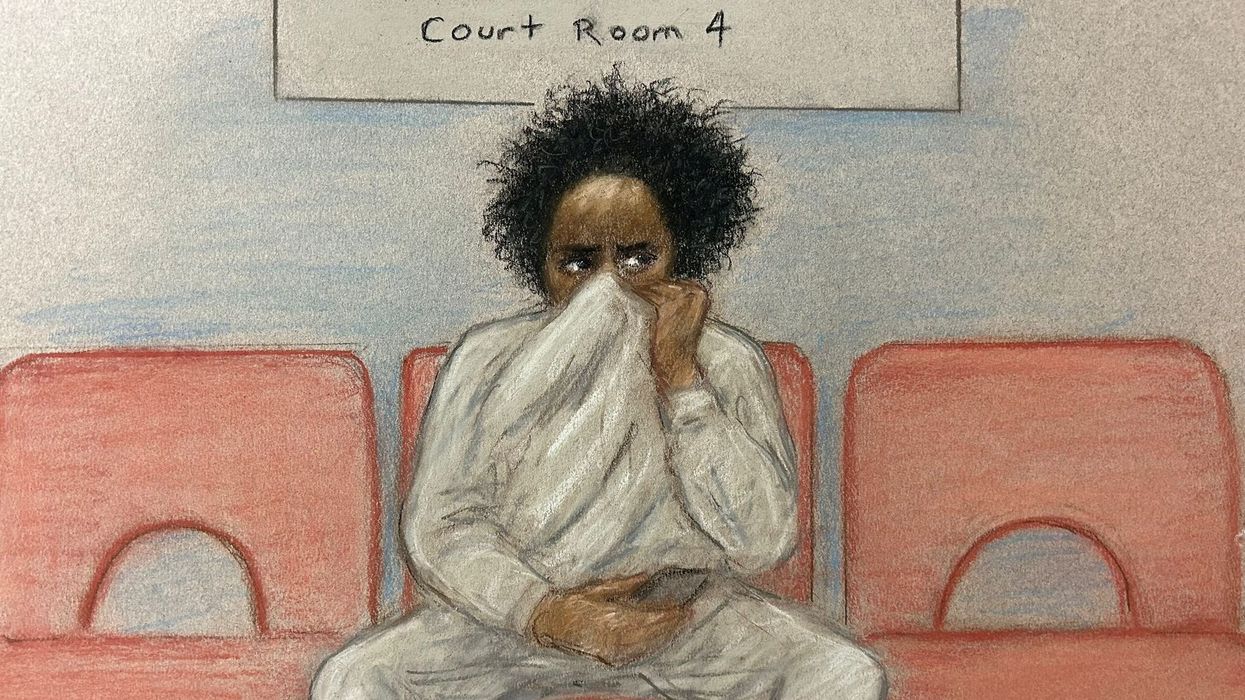







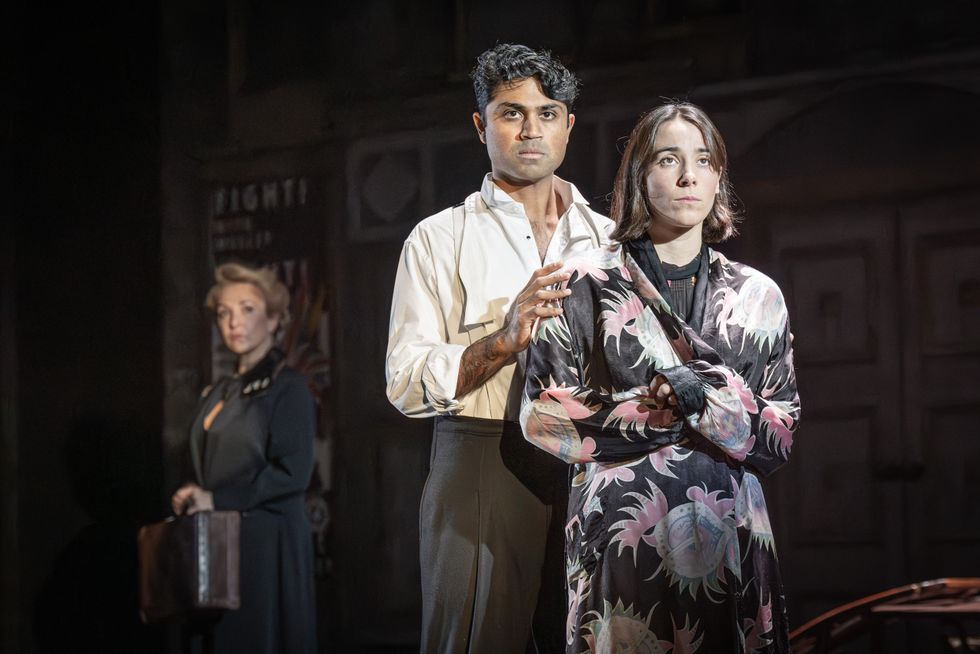 Mikhail Sen, who plays Lorenzo and the Maharajah, with Grainne Dromgoole as Jessica
Mikhail Sen, who plays Lorenzo and the Maharajah, with Grainne Dromgoole as Jessica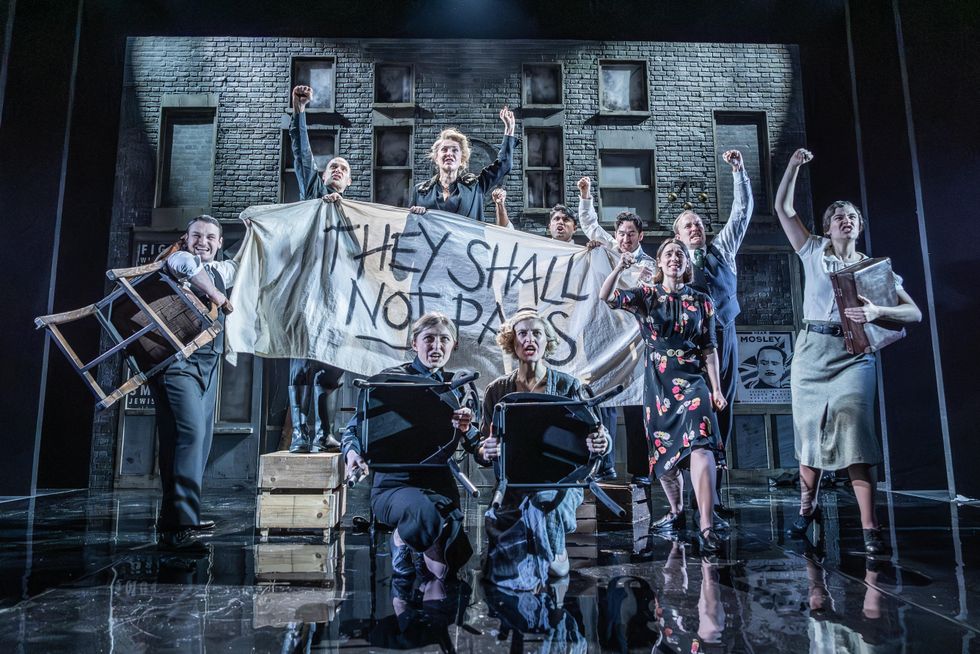 A scene from the play
A scene from the play
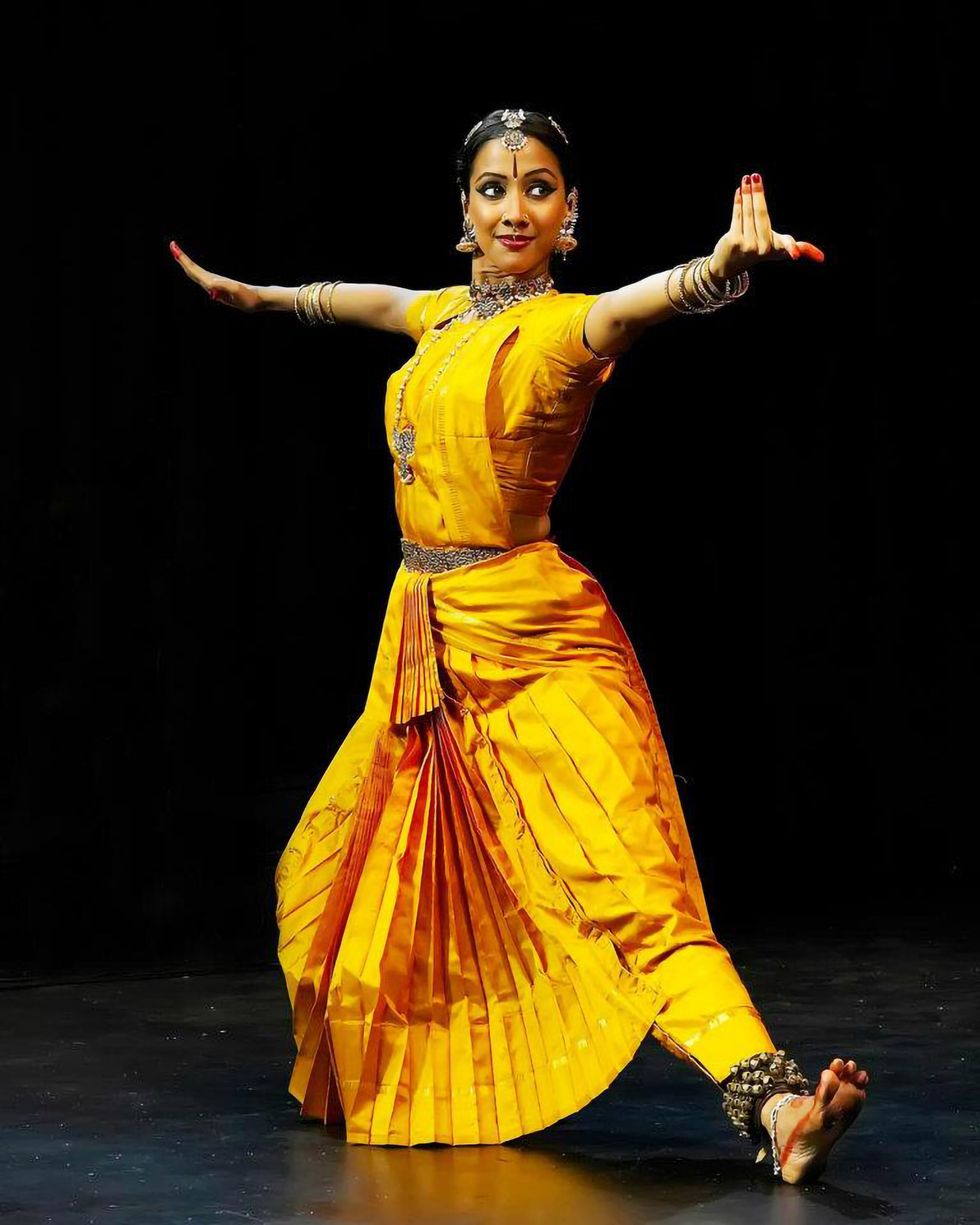 Mythili Prakash
Mythili Prakash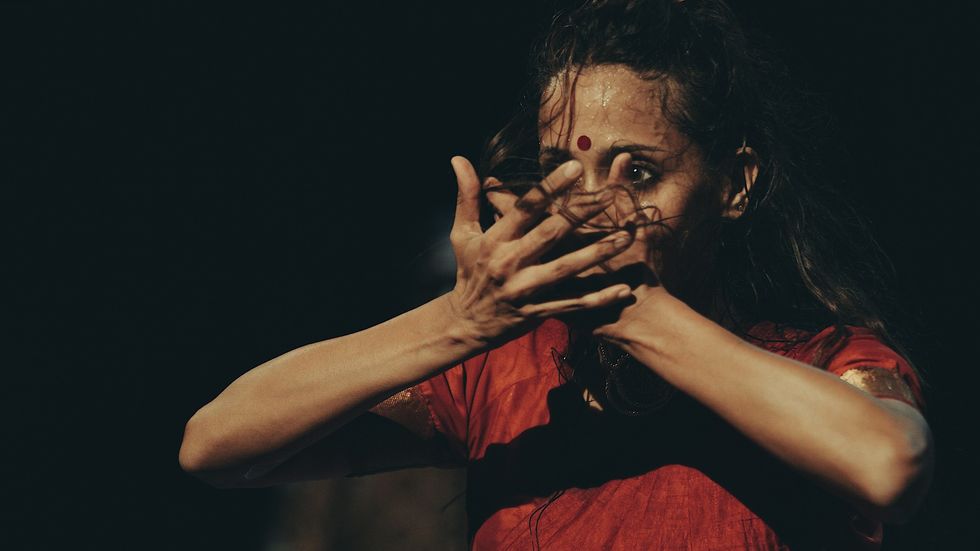 Prakash in She’s Auspicious
Prakash in She’s Auspicious
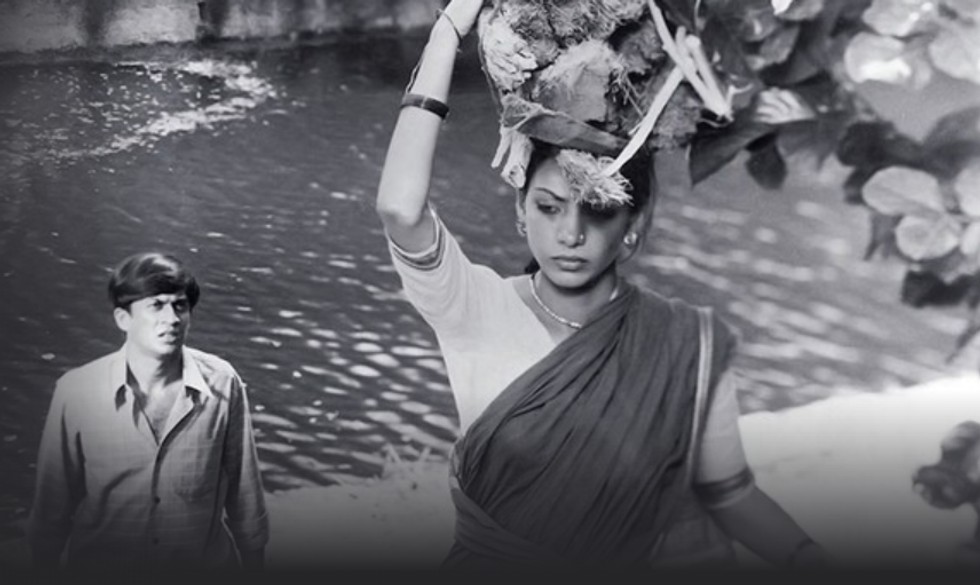 A scene from Ankur (1974)
A scene from Ankur (1974)